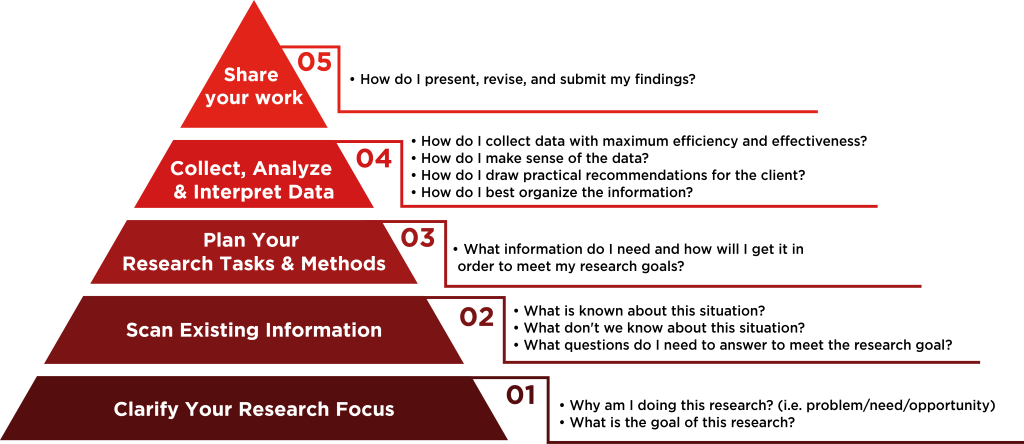Developing Your Research Framework
If you intend to submit an application for funding, you can expect to be assessed on all aspects of your Research Design. This is the framework of research methods and techniques chosen by a researcher to ensure successful completion of the project. Clear articulation and justification of those selected methods could persuade a potential sponsor to fund your project.
While not all projects follow a perfect linear sequence, these are key project activities:
- Clarify your Research Focus and determine the goal of your research
- Scan Existing Information to identify previous research and/or gaps in the field
- Plan your Research Methods
- Collect, Analyze & Interpret Data
- Share your Findings

This dropdown contains the text of the above image
01. Clarify Your Research Focus
- Why am I doing this research? (i.e problem/need/opportunity)
- What is the goal of this research?
02. Scan Existing Information
- What is known about this situation?
- What don’t we know about this situation?
- What questions do I need to answer to meet the research goal?
03. Plan Your Research Tasks and Methods
- What information do I need and how will I get it in order to meet my research goals?
04. Collect, Analyze & Interpret Data
- How do I collect data with maximum efficiency and effectiveness?
- How do I make sense of the data?
- How do I draw practical recommendations for the client?
- How do I best organize the information?
05. Share Your Work
- How do I present, revise, and submit my findings?
Further Learning: Research Project Planning at Fanshawe
If you would like to do a deeper dive into this topic, there is a module called Research Project Planning for Beginners in Fanshawelearns.
This and other resources can be found in the CRI Research Playlist.

